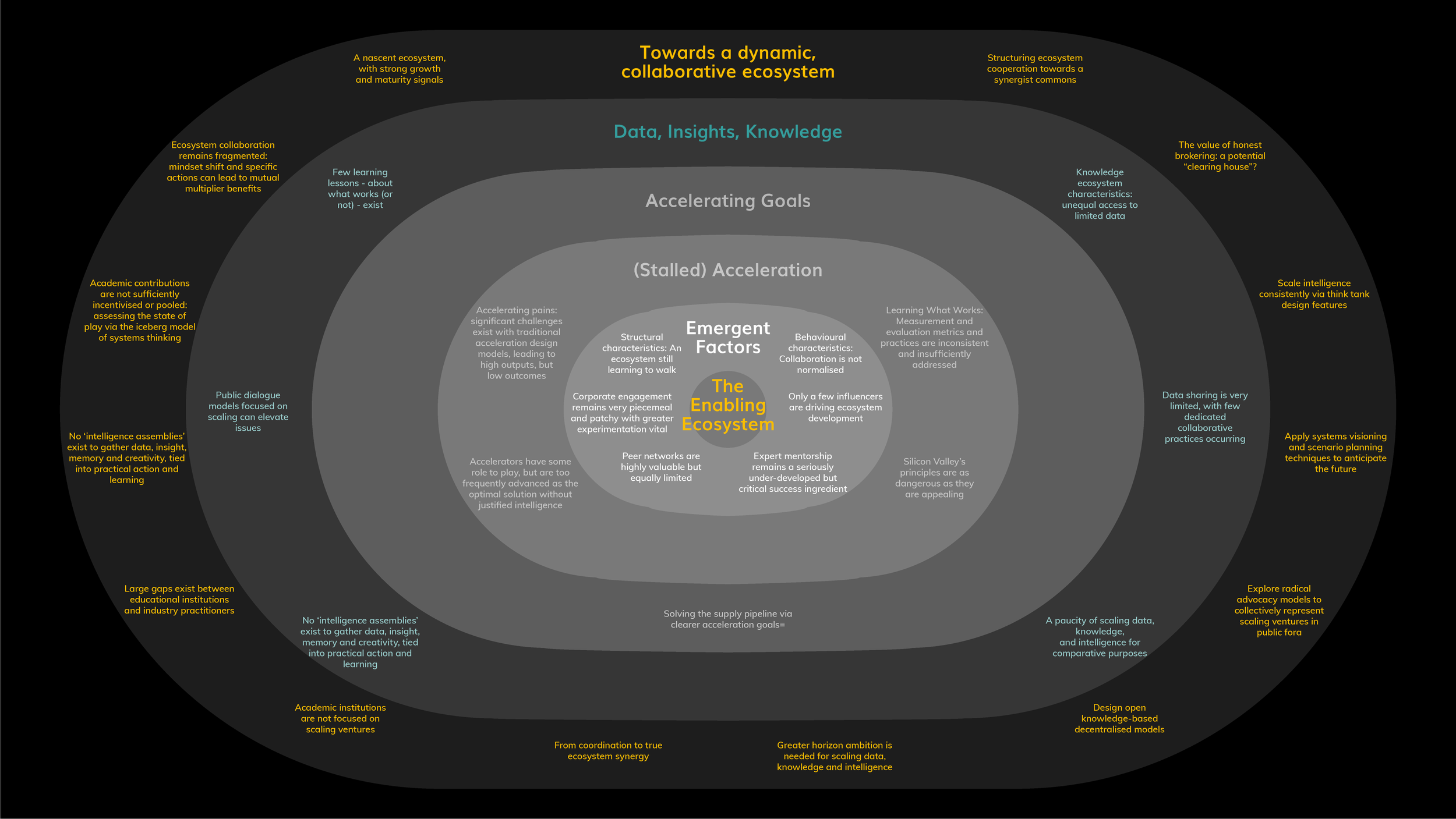The Enabling Ecosystem
Recommended Actions
-
Develop a range of roadmapped and prioritised options, reflecting horizon 1 to 3 planning, for further investment and resourcing.
Identify a range of appropriate funding and implementation partners.
-
Conduct diagnostics, and review and evaluate existing efforts.
Consider international and industry best practice, adapted for the African context.
Include peer-to-peer mentorship.
Design a small pilot to test and tweak the strategy.
Identify appropriate funding and implementation partners.
-
Further information available upon request
-
Case studies to illustrate the range of pathways to scale, and lessons learnt on the ground.
In accordance with innovation principles, includes mechanics for black-box failure intelligence.
These should be made widely accessible and available, in different formats (and languages) for multiple audiences.
Shared widely across the ecosystem, ensuring appropriate involvement from innovation hubs, higher education and academic institutions.
-
Lay out the groundwork, establish partnerships (including global experts), and evaluate a range of potential mission-based “challenge” options (i.e. what, where, how, who).
Develop a pilot for specific sectors to “test and learn” from proposed data collaboration approaches, with grant funding made available to early adopters.
Build out a longer-term collective vision of what could be achieved if there is open and reliable access to scaling data, insights and knowledge.
-
Consider technology and pedagogy supply principles, instead of assuming certain supply expectations, with a view to improving scale-ups’ knowledge absorption.
-
Conduct a feasibility assessment, consulting broadly with key stakeholders including academic institutions and ecosystem support actors.
In addition to the overarching framework for the series, design in detail a sample intervention for illustrative purposes.
-
Functions include developing a range of knowledge-sharing and syndication pathway opportunities for mutual gain, applying systems-led principles (openness, fair distribution, transparency, inclusivity etc).
Includes an advocacy function to ensure that scale-ups’ interests are promoted at national, regional and pan-African policy levels.
Performs an independent, objective ‘clearing house’ function.
Includes a non-traditional commercial scaling community of practice model which offers tangible value to a range of ecosystem actors and which reflects synergistic open collaboration principles.
Provide practical guidance on scaling diagnostics, metrics, enhanced reporting, management dashboards etc. to create greater awareness, improve attitudes, and change behaviours around best management practices.
Provides guidance to investors on ‘Capital Plus’ approaches to improve non-capital support to scale-ups.
Collates, shares and deploys intelligence and insights to help improve the skills and capability of leadership teams.
Potentially includes an African scale-up scenario planning and futures programme for key verticals (to be funded by new public/ private partnerships).


